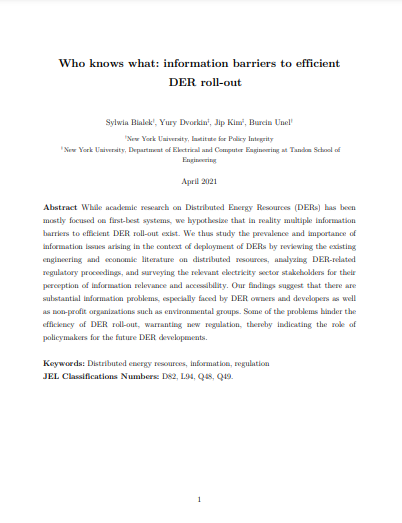The Institute for Policy Integrity produces a variety of publications. Our research reports develop in-depth research on our core issues, while our policy briefs and issue briefs provide focused analysis on more timely or particular topics. Our academic articles and working papers offer original scholarly research and analysis from established experts as well as fresh new voices.
Latest Publications
-
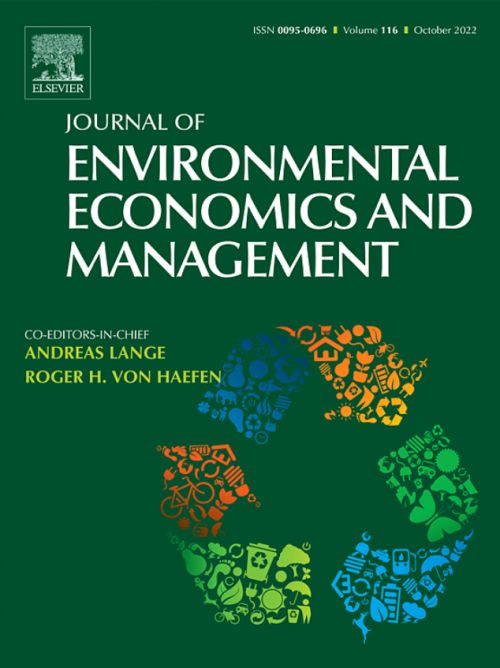
Do Non-Damaging Earthquakes Shake Mortgage Lenders’ Risk Perception?
Working paper in Journal of Environmental Economics and Management
This study examines how banks respond to earthquakes that convey seismic risk salience but do not cause damage, i.e., noticeable non-damaging earthquakes (NNDEs). Using evidence from California, we find loans more likely to be denied or sold after increased NNDEs. Banks with fewer assets, more diversified branching markets, or stronger sales capability relied more on securitization to transfer the perceived seismic risk. We show evidence that banks likely learned about the NNDEs through personal experience and local news. The effects of NNDEs persisted up to three years. Meanwhile, the NNDEs only caused moderate and temporary collateral devaluation but did not increase the observable default risk. Thus, banks' responses most likely resulted from the increased risk salience of future damaging earthquakes during the mortgage term. Our findings call for reevaluations of the heuristics in banks' risk-perception updating and have implications for designing more efficient disaster risk-sharing mechanisms in the financial market.
-
Who Knows What: Information Barriers to Efficient DER Roll-Out
Published in International Association of Energy, Environment and Economy Journal
While academic research on Distributed Energy Resources (DERs) has been mostly focused on first-best systems, we hypothesize that in reality multiple information barriers to efficient DER roll-out exist. We thus study the prevalence and importance of information issues arising in the context of deployment of DERs by reviewing the existing engineering and economic literature on distributed resources, analyzing DER-related regulatory proceedings, and surveying the relevant electricity sector stakeholders for their perception of information relevance and accessibility.
-
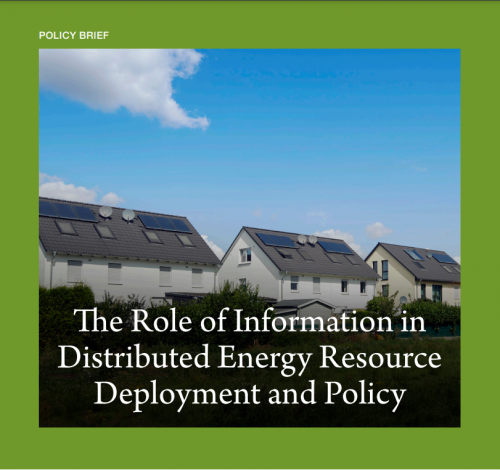
The Role of Information in Distributed Energy Resource Deployment and Policy
While appropriate compensation for DERs has received considerable attention in DER policy discussions, one important dimension has received less attention: informational gaps and asymmetries. In particular, key information about distribution networks, energy consumption, and marginal emission rates is often either entirely lacking or readily available only to some parties. Such information disparities can impede effective policymaking. To overcome the inefficiencies information asymmetry creates, regulators must carefully tailor disclosure mandates and incentives for utilities, as these actors often have little incentive to go beyond the letter of the law in data disclosure.
-
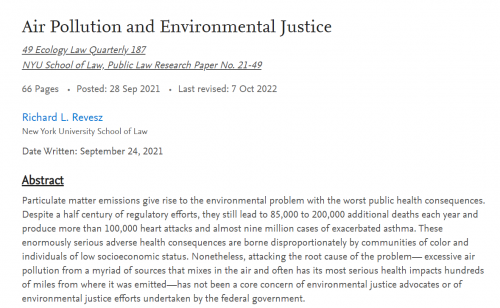
Air Pollution and Environmental Justice
Published in Ecology Law Quarterly
The article examines the failures of the U.S. Environmental Protection Agency to address the environmental justice harms from air pollution and identifies three recent development that could augur beneficial change.
-
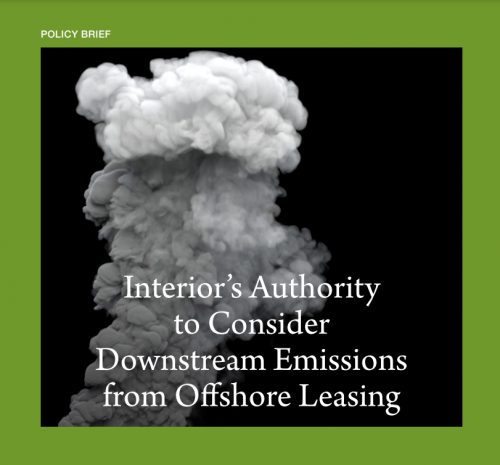
Interior’s Authority to Consider Downstream Emissions from Offshore Leasing
In its proposed Outer Continental Shelf oil and gas leasing program for 2023–2028, the Bureau of Ocean Energy Management (BOEM) claims that it cannot consider downstream greenhouse gas emissions when setting leasing policy because of a 2009 D.C. Circuit case, Center for Biological Diversity v. Department of the Interior (CBD). This Policy Brief explains that BOEM misreads CBD, which held only that the Outer Continental Shelf Lands Act (OCSLA) does not require the agency to consider downstream effects. The Policy Brief further explains that neither CBD nor any other case law bars BOEM from considering downstream effects and that consideration of such effects is in fact consistent with the text, legislative history, and regulatory history of OCSLA.

